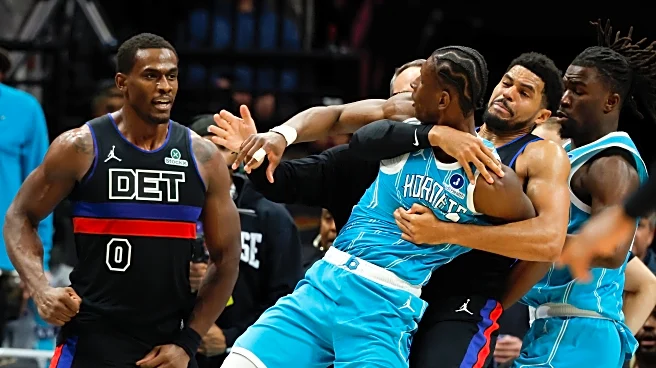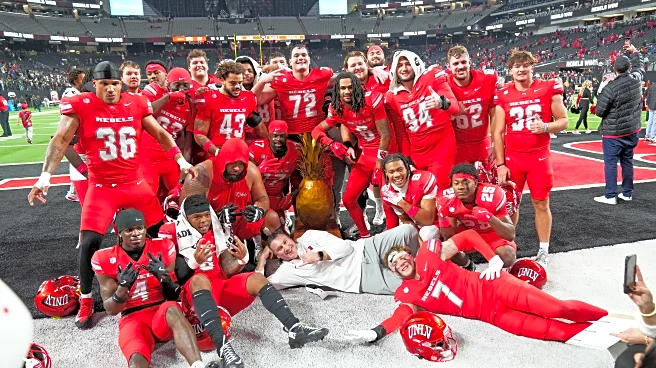What's Happening?
UCLA's decision to fire football coach DeShaun Foster has created uncertainty around the recruitment of its 2026 class. Foster, who had begun to improve UCLA's recruiting efforts by leveraging the Big Ten stage, was dismissed after a disappointing loss to New Mexico. The Bruins' recruiting class, ranked 24th nationally, is now at risk as several prospects have announced their decommitments. This development poses a challenge for UCLA as it seeks to stabilize its recruitment strategy and maintain competitiveness in attracting top talent.
Why It's Important?
Recruitment is a critical component of a successful college football program, and UCLA's current situation could impact its ability to compete in the Big Ten. The loss of committed prospects may weaken the team's future roster, affecting its performance and reputation. The firing of Foster, who had started to make strides in recruitment, underscores the need for UCLA to quickly address these challenges and reassure potential recruits of the program's stability and vision. The outcome of this situation will have long-term implications for UCLA's competitiveness and ability to attract high-caliber athletes.
What's Next?
UCLA must act swiftly to mitigate the impact of Foster's firing on its recruitment efforts. The university will need to communicate a clear plan to potential recruits, emphasizing the program's strengths and future direction. The search for a new head coach will be pivotal in restoring confidence among recruits and stakeholders. UCLA has the opportunity to redefine its recruitment strategy, potentially attracting a coach with a strong track record in talent acquisition. The next steps will be crucial in ensuring the program's resilience and ability to compete at a high level.











